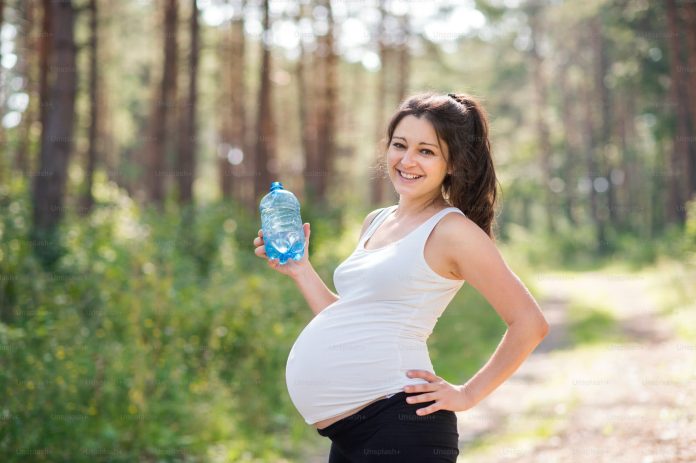Optimal hydration is crucial for everyone, even more so for pregnant women nurturing a new life within. You need to drink plenty of water to stay energetic, eliminate toxins from your body, and maintain fetal well-being. Studies show that the hydration status of a pregnant woman may even influence health outcomes and the possibility of complications.
While you have good reasons to maximize water intake during pregnancy, think twice about the potential contaminants it might contain. Data indicates that nearly half of domestic tap water supplies in the US are contaminated. As you drink this contaminated water, you may do more harm than good to your unborn baby.
Awareness can be your best defense as it makes you more cautious so that you can seek remedies for safe supplies. This article will explain the potential risks of waterborne toxins for pregnant women.
Microbial Contamination
Microbial contamination is one of the primary concerns when it comes to water quality. Waterborne microbes include viruses, bacteria, and parasites that can enter your body and make you sick. The worst part is that these microbes are hard to detect because you cannot see, smell, or taste them.
Pregnant women are more susceptible to bacterial, viral, and parasitic infections due to weakened immune systems. You may fall prey to pathogens such as Escherichia coli (E. coli) and Cryptosporidium which often cause severe gastrointestinal issues and dehydration. In adverse cases, these complications can lead to adverse pregnancy outcomes like preterm birth and low birth weight.
According to the CDC, the best way to address the risk is to regularly clean devices using water to remove germs, debris, dirt, and impurities. Installing a water filter at home is another essential measure.
Heavy Metals
Exposure to heavy metals like mercury, lead, and arsenic can be fatal for an unborn baby. In a study, arsenic in drinking water was linked to adverse pregnancy outcomes such as shorter gestation periods and reduced fetal growth. Heavy metals can cross the placental barrier and reach the fetus causing toxin exposure.
Lead exposure can cause cognitive and developmental delays, and mercury can impact the nervous system of the fetus. Pregnant women must ensure regular testing for their domestic supplies to ensure that the levels of heavy metals do not cross the recommended limits. Additionally, installing water filters is a good way to address the concern.
Per- and Poly-Fluoroalkyl Substances (PFAS)
PFAS exposure is the worst thing you may face during pregnancy. These toxins are the hardest to deal with because they persist in the environment as “forever” chemicals. They contaminate water sources through improper disposal, industrial discharges, and firefighting foams. The Camp Lejeune disaster is a real-world instance of PFAS exposure causing long-term damage to human health.
From 1953 to 1987, the residents of the Camp Lejeune military base in North Carolina were exposed to toxic water containing PFAS. The Camp Lejeune Justice Act of 2022 was passed to ensure justice and compensation to victims suffering due to exposure to toxins. These include women who encountered various complications due to the contaminated water.
According to TorHoerman Law, victims can claim compensation to cover the cost of medical treatment, damages, and pain and suffering caused by the exposure. The narrative underscores the significance of seeking safety from PFAS exposure during pregnancy and otherwise. Effective treatment technologies, strict checks, and responsible waste management practices can prevent such disasters.
Pesticides and Herbicides
Did you know that agricultural runoff is a common cause of water contamination? Pesticides and herbicides can find their way into tap water by directly discharging contaminated wastewater or leaching in soil. You may also consume them through agricultural produce grown with inorganic practices.
Organophosphates and glyphosate are the key culprits found in pesticides and herbicides. These chemicals have been linked with adverse pregnancy outcomes, such as birth defects and neurodevelopmental issues in babies. Installing water filters and using organically-cultivated fruits and vegetables are the best ways to minimize risks.
Endocrine Disruptors
Waterborne toxins detrimental to maternal and fetal health include endocrine-disrupting chemicals (EDCs) such as phthalates and bisphenol A (BPA). These chemicals disrupt the maternal hormonal balance and potentially affect the developing fetus’s endocrine system. They can also affect the reproductive health of couples planning a pregnancy.
The consequences of drinking water laced with endocrine-disrupting chemicals during pregnancy are disconcerting. These include impaired neurodevelopment, altered sexual development, and a high risk of reproductive disorders in male and female offspring. Running tap water through a certified water filter can decrease the levels of some EDCs in your domestic supplies.
Ensuring access to safe and toxin-free water is paramount during pregnancy. Your condition makes you vulnerable to the harmful effects of contaminants, from waterborne diseases to fetal harm and other diseases. You should take proper steps to test and filter tap water supplies to ensure safe hydration during this delicate phase.





